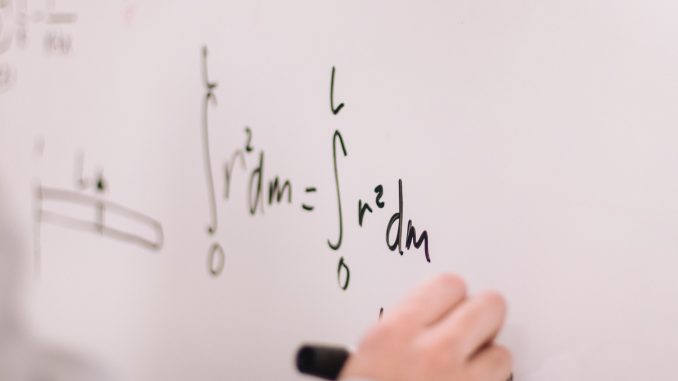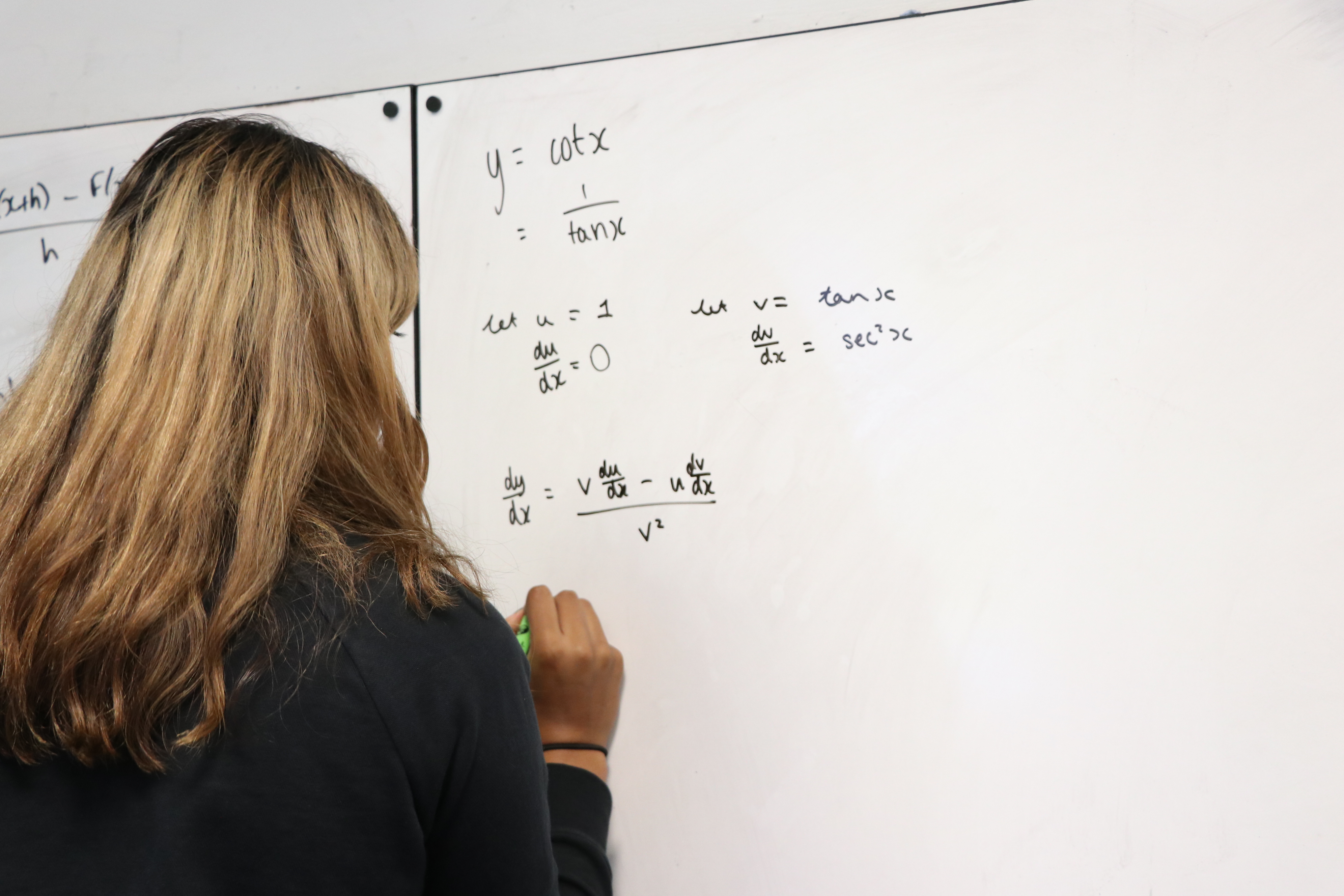Alys Lloyd, a Maths Teacher at Wimbledon High School, looks at society’s attitude towards Maths, what makes a good mathematician, and how you can compare the retaining of mathematics knowledge to that of languages.
Teachers do have social lives, although to our students this might be a shocking idea. A teacher being spotted outside of school, in the supermarket for example, can send some students into a flat spin. So the idea of a teacher being at a party might be difficult to imagine, but I can assure you, it does happen!
At parties and in social situations with people who don’t know me, I have found that my job can, unfortunately, put a bit of dampener on things. A typical conversation opener is to ask what someone does for a living. The most common response to my saying that I’m a Maths teacher is “oh, wow” then something along the lines of “I was never any good at Maths in school.” Then the person I was talking to politely excuses themselves. I now tend to dodge that kind of question and stick to safer topics.
Why is it socially acceptable to say you are bad at Maths? I doubt that so many people would be so upfront saying that they can’t read… So why does Maths get such bad press?

My Theory
Mathematics is a very black and white subject, with normally only one right answer, although there may be lots of different ways to get there. Many people have been put off Maths because in the past they have got stuck, had a negative experience and not known how to get to the correct solution.
This may have been because the teaching was poor, or the methods they were taught to use didn’t make sense to them, or they didn’t speak up in class so didn’t get help. I believe that by far the most common reason is that they take getting stuck personally. They believe that they didn’t get the right answer because they themselves are bad at Maths. Unfortunately, I don’t think this is something that just happened in the past; it still happens, and I see it happening with the highly achieving girls at WHS. They are not used to getting things wrong, finding something difficult, having to struggle, and they take it personally – they internalise this as a failure: they are bad at Maths.
Which leads us to the question: what makes someone ‘good’ or ‘bad’ at Maths? Who is someone who is ‘good’ at Maths? A Lecturer or Professor of Mathematics? A Maths teacher? Or someone who simply enjoys doing Maths? Is it about who you are comparing yourself to? As a Maths teacher, my level of mathematics is low compared to a Mathematics Professor. Being good at mental arithmetic is not the same as being good at Maths; possibly conversely in fact – professional Mathematicians are notoriously bad at mental arithmetic, as are some Maths teachers!
So, for people who say: “I’m bad at Maths”, they may think that those people who are ‘good’ at Maths never get stuck; never struggle to get to the answer. But I can assure you, that is not the case. I am a Maths teacher and I get stuck on Maths problems. I definitely don’t always immediately know how to get to the answer.
I believe the difference in how you feel about Maths is about what you do when you get stuck, because we ALL get stuck. Being stuck isn’t bad – it’s part of the process. It is a way of forming new connections in the brain; it’s a part of learning.
When I get stuck on a problem I don’t take it personally; I don’t take it as a reflection of my mathematical ability; I think of it as a challenge, a conundrum to be figured out, a puzzle to be solved. If I can’t find a solution quickly, I stop and try to think about it differently. Could it be thought about in another way? Can I visualise it by drawing a sketch or diagram? Is there an alternative approach or method I haven’t tried? Have I used all the information I have available? These are very important problem-solving skills and have lots of relevance to everyday life.

Use it or lose it
Mathematics in many ways can be considered its own language. When learning languages, you start with basics: hello, please, thank you, and a few important sentences (dos cervezas, por favor); and build up to be able to communicate fluidly. If you have ever tried to learn a language seriously, you will know that it is not a smooth process. You go through phases of thinking you’re doing great, then you feel like you plateau – you realise that there is a whole verb tense you had no idea existed, that you now need to learn.
Maths is similar. You need to know the basics: numbers, patterns, arithmetic, and a few important ideas like algebra; and you build up to some quite complicated Maths like calculus, proof, complex numbers. With Maths numbers and algebra are the words, and rules like BIDMAS are the grammar. They are a means to the same end as languages – to communicate effectively.
One aspect of learning a language (or learning a musical instrument) is that if you don’t practise it regularly, you start to lose the gains you had made; it becomes more difficult, and eventually you forget. I firmly believe – that like a language – if you don’t use Maths, if you don’t practise it regularly, you start to lose it.
For me, this explains why parents can struggle to remember how to do school-level Maths with their children, even if they found it easy when they were young – they haven’t practised it in years. It can seem like an alien language – it’s hard to pick something up again when you have had such a long gap.
Yet even if you, yourself, haven’t used Maths in years, you are constantly using things that have been programmed by someone using Mathematics. Maths underpins everything ‘modern’ around us: the computer at which I am typing this article, the smartphone in your pocket; it keeps planes in the air and stops them crashing into each other; it’s in our buildings, in our clothes; Maths is fundamental to our modern style of living.
We want to encourage our children to feel it is socially unacceptable to be bad at Maths. We want them to be the ones solving the problems of the future, and part of this will certainly require mathematics.
So, what’s the take-home message? I’d like to think it’s this: in Maths, as in life, we all get stuck, but the people who succeed are the ones who don’t give up. And if you are lucky enough to meet a Maths teacher at a party, please be nice!


